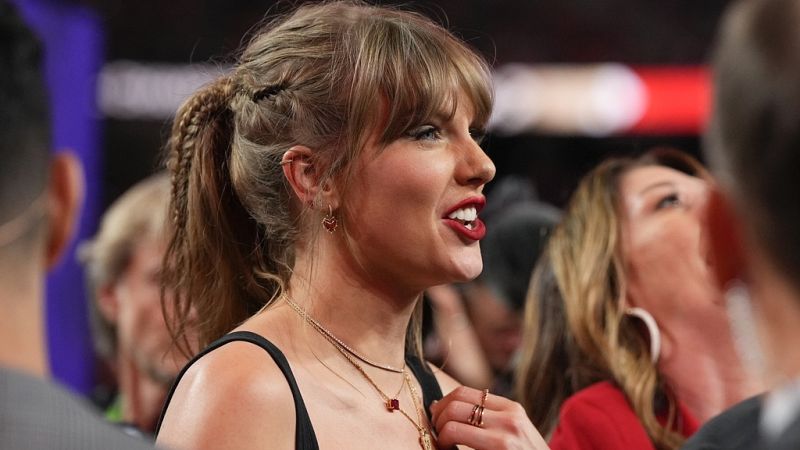
FROM MADONNA TO TAYLOR SWIFT: THE RISE OF THE CELEBRITY TRADEMARK
Taylor Swift earlier this month filed a trademark for a section of her tour, "Female Rage: The Musical", showcasing songs from her new album "The Tortured Poets Department".
This isn't the first time the international star, now worth more than $1 billion, has applied for legal rights over phrases related to her brand.
As well as trademarking her name, initials, and album titles, Swift has also made headlines for more obscure requests.
Using a number of her lyrics, at least in a commercial context, could now get you into hot water.
Trademarked lines include "This Sick Beat", "...Ready For It?", along with the quip from her Reputation album: "The Old Taylor Can't Come To The Phone Right Now".
The term "Swiftmas" is also protected, as well as the names of her cats, Meredith, Olivia, and Benjamin Swift.
Money machine or preventative move?
Public figures don’t always set out to "become brand names for products related to their main activities," Jerry Bridge-Butler, Chartered Trademark Attorney with Baron Warren Redfern, told Euronews Business.
"However, once their popularity reaches a certain level it becomes a very powerful attractive force which can be used to shift products. Put the band name 'Taylor Swift' on any piece of merchandise and it will sell in large numbers to hoards of adoring fans."
According to Forbes, Taylor Swift allegedly made around $200 million (€184 million) in merchandise sales in 2023, selling t-shirts and other items at her Eras Tour shows.
Charlotte Wilding, Chartered Trademark Attorney with Keltie, also told Euronews that trademarking is a protective measure.
"It can be difficult to regain control over a brand, or element of a brand, if it is obtained by a third party, which is why filing for protection is highly recommended."
Although it is possible for public figures to win back ownership of their name or mark, it isn't easy.
In 2019, footballer Neymar Júnior won a court case against Portuguese businessman Carlos Moreira, who had sought to trademark the name 'Neymar' to sell clothes, shoes, and headwear.
Neymar's representatives argued that, given the footballer's fame, the application was made in "bad faith".
Another ownership battle played out between Kylie Jenner and Kylie Minogue in 2017.
When Jenner, a reality star, applied for a trademark over her first name in the US, Minogue's team opposed the move, claiming it could cause "damage" to the Australian singer’s branding.
Trademarking: That’s Hot
Madonna was one of the first celebrities to apply for rights to protect her name and brand in the 1980s, and requests have since become far more common.
Paris Hilton, the American socialite, has successfully trademarked her catchphrase "That's Hot", while Donald Trump has ownership of his presidential slogan "Make America Great Again".
Another example is Usain Bolt, who applied in the US last year to trademark a logo showing his signature victory celebration pose.
The European Union Intellectual Property Office (EUIPO), which is responsible for EU trademarks, told Euronews it accepts the vast amount of applications it receives.
The body was sent around 175,694 requests in 2023 and registered 161,216 trademarks, bringing the success rate to 91%.
One reason for a rejection, according to Niall Tierney, an intellectual property lawyer and consultant in Dublin, is that a trademark can't describe the goods being sold.
"For example, if a soap manufacturer applied to register SOAPY for detergent products, then that would be refused," he explained.
In the US, a trademark can only be granted if the mark is being used, whereas in the EU and the UK, no such condition exists.
Another difference is that in the US, the existence of an earlier trademark means that new applications will be automatically blocked.
In the UK and the EU, it is up to earlier rights-holders to protect their own trademarks.
2024-05-24T13:36:31Z dg43tfdfdgfd